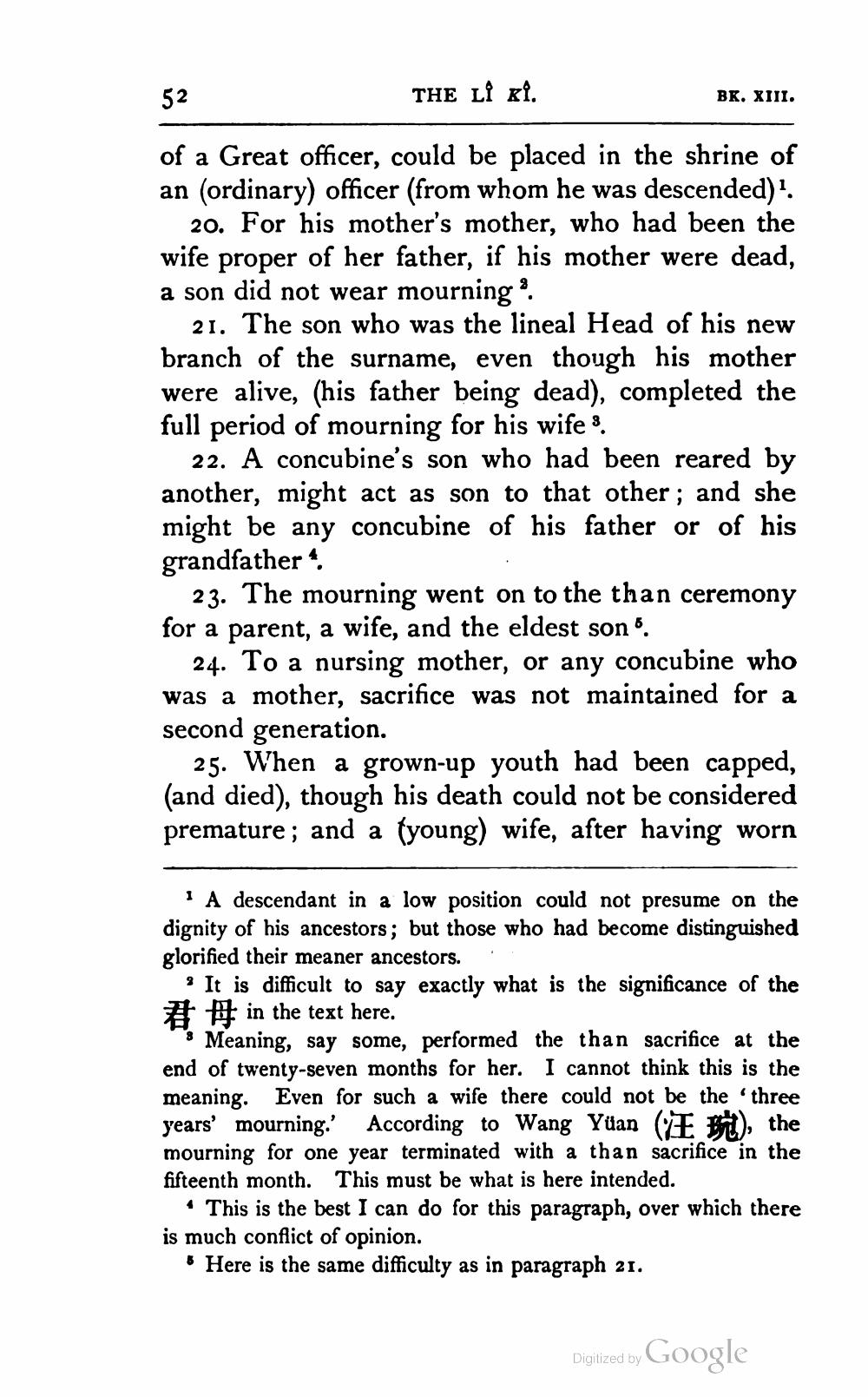________________
32
THE LÎ ki.
BK. XIII.
of a Great officer, could be placed in the shrine of an (ordinary) officer (from whom he was descended)".
20. For his mother's mother, who had been the wife proper of her father, if his mother were dead, a son did not wear mourning.
21. The son who was the lineal Head of his new branch of the surname, even though his mother were alive, (his father being dead), completed the full period of mourning for his wife 8.
22. A concubine's son who had been reared by another, might act as son to that other; and she might be any concubine of his father or of his grandfather
23. The mourning went on to the than ceremony for a parent, a wife, and the eldest son.
24. To a nursing mother, or any concubine who was a mother, sacrifice was not maintained for a second generation.
25. When a grown-up youth had been capped, (and died), though his death could not be considered premature; and a (young) wife, after having worn
1 A descendant in a low position could not presume on the dignity of his ancestors; but those who had become distinguished glorified their meaner ancestors. . . It is difficult to say exactly what is the significance of the
in the text here. 3 Meaning, say some, performed the than sacrifice at the end of twenty-seven months for her. I cannot think this is the meaning. Even for such a wife there could not be the three years' mourning. According to Wang Yuan ( BH), the mourning for one year terminated with a than sacrifice in the fifteenth month. This must be what is here intended.
* This is the best I can do for this paragraph, over which there is much conflict of opinion.
• Here is the same difficulty as in paragraph 21.
Digitized by Google




